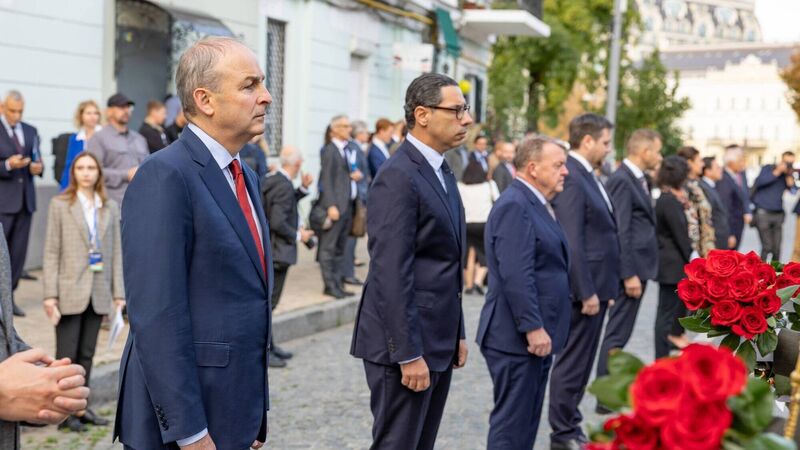Irish Examiner view: Support for Ukraine may be drying up

Tánaiste Micheál Martin laying flowers at the Memory Wall of Fallen Defenders of Ukraine in Kyiv, while there to participate in a meeting of the EU Foreign Affairs Council. Picture: Irish Embassy in Kyiv
















